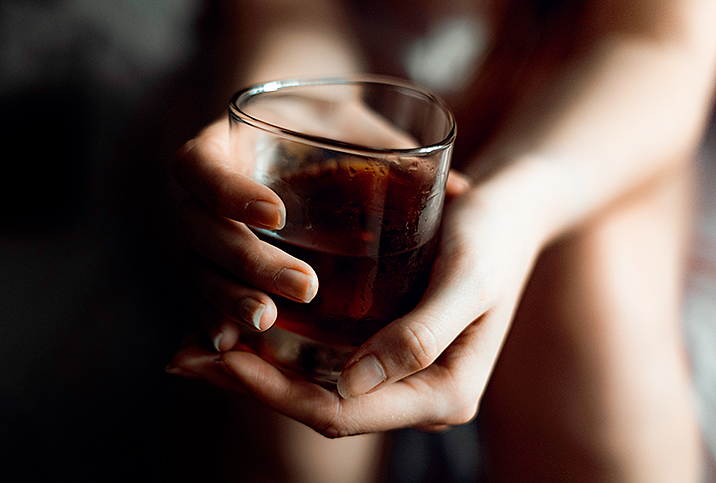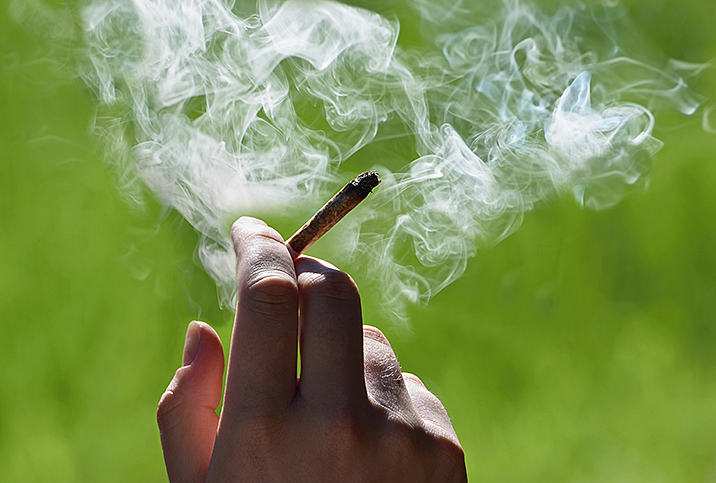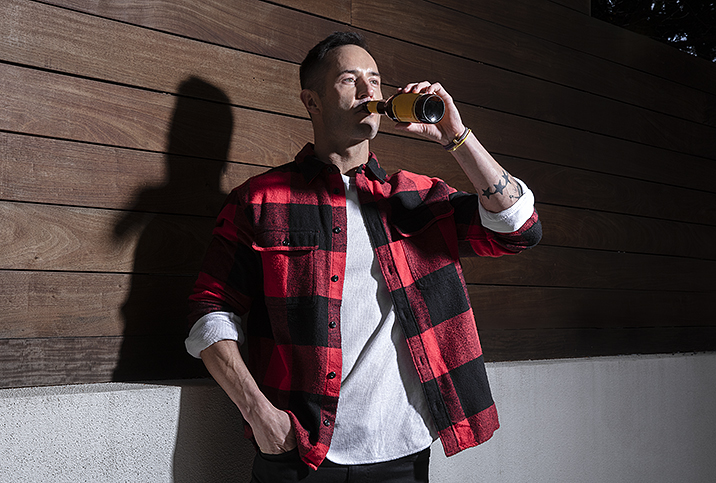Cutting Alcohol Is Not an Easy Journey, But It's a Good Destination

There's no doubt the past two years have been hard on everyone, and when times get hard, some people turn to alcohol.
Alcohol sales skyrocketed and consumption—including binge drinking—increased as soon as the nation went into lockdown in the early days of 2020. However, a small portion of folks began drinking less.
Last year, I completely stopped.
My accidental sobriety
Quitting alcohol wasn't a deliberate decision. I was not correcting for a period of overconsumption or beginning a new health challenge. In fact, it started so quietly, I'm not even sure which month it began. I just knew I had very clear signals it was time to stop. This was the third time.
The first time I gave up alcohol, I was in my late 20s. My sister had just received her three-month sobriety medallion from Alcoholics Anonymous when she was killed in a drunk driving accident—she was the drunk driver.
I decided the best way to honor my sister and her 15-year struggle with addiction was to abstain from alcohol for a year. It was a pilgrimage, a way to connect to her spiritually, and it was hard at first, which was good. The harder, the better. My grief melded with my struggle to abstain in a way that made it feel like I was actively doing something. Afterward, I thought maybe living that first year without her—sober—helped my sister to heal a little, wherever she was.
The second time I quit alcohol, my marriage was crumbling. Following some difficult interactions with my husband, I developed a fear of being physically near him. We started therapy. One night I decided that if I got quite drunk, I might be able to allow him near me and maybe that would fix the problem. I did my part with the heavy drinking, but at the end of the night, my desire for safety prevailed and I went to bed alone.
'Sobriety gives me back the two most valuable things I possess: my energy and my time.'
The morning after, with an aching head, I realized with disgust that I had, in a way, tried to pimp myself out. I got quiet and listened, and knew I needed to abstain from any intoxicants. I knew alcohol would only muddy an already messy situation.
Months after my separation, I was diagnosed with PTSD.
For my first year of single life (also the first year of the pandemic), I bought ciders and wine and joined friends for gin and tonics. I was excited to have alcohol back in my life until suddenly I wasn't. At first, I thought I just wasn't buying the right brands. Maybe I liked sours now. Or dry. Why was I disappointed every time I finished a bottle?
Mentally, I wanted to drink. I really wanted to like it again, but it had somehow fallen out of favor, and I couldn't regain the desire. Sometimes I'd not listen to myself and open a bottle anyway, but finishing it was a chore. Occasionally I'd pour it down the sink.
Once I stopped resisting, I realized my accidental sobriety made me much more intuitive. I felt energetically connected to everything at a different level. I could feel the same mind-altering, heart-opening high without any alcohol or the negative feelings that came with it.
'Sobriety blesses me in ways I never imagined'
Michaela Miller also stopped drinking alcohol during the pandemic. Miller is a yoga instructor in Cincinnati, Ohio, who passionately extols the mental, physical and spiritual benefits of yoga. She also is a producer at Storyocity, a direction and design studio.
"As a child, I grew up in a very invalidating household that left me with a lot of trauma," Miller said. "I turned to binge drinking to manage my intense emotions at age 17, and over the past decade have experienced depression, anxiety, anger and great loss because of it. I've sent myself to hospitals, psych wards and even jail because of my drinking habit."
In her mid-20s, Miller started thinking about decreasing her consumption "to find self-forgiveness and joy, and to finally tackle the deep trauma bubbling beneath the surface."
"Now, in 2022, I feel confident I have taken my final sip," she explained. "Sobriety blesses me in ways I never imagined. I am much more in touch with my intuition, which has led to better decision-making overall. Sobriety gives me back the two most valuable things I possess: my energy and my time. I'm finally pursuing long-deserted passion projects with newfound enthusiasm and conviction."
Decreasing alcohol consumption
If you decide you'd like to reduce how much you drink, there are many techniques and strategies that'll support you along the way.
Find a support group
What started as a fun "Sober October" challenge with Miller and her best friends turned into full-blown sobriety for some of them. They were there for each other during cravings, slip-ups and successes.
If your friend group isn't feeling sober-curious, find support elsewhere. There are hundreds of recovery groups to choose from, from Alcoholics Anonymous to Moderation Management.
HALT
Tony Marini, a senior therapist at Castle Craig rehab clinic in Scotland, said, "Think about the triggers that make you want to pick up a bottle." Castle Craig, like many mental health services, uses the acronym HALT to highlight the four feelings that are the most common drinking triggers: Hungry, Angry, Lonely and Tired.
"You can't avoid these triggers," Marini added. "However, you can recognize them when they show up and have a plan for the way you will react to them."
Forgive yourself
Odds are, you're going to slip up.
"Relapses are damn near inevitable, [but they] still bring you one step closer to your goal," said Miller. "Remember, healing is not linear. Don't view your slip-up as an excuse to fall back into old habits.
"I tried the 'moderation' thing time and again, and it just really never worked out. It took a full year to accept that abstinence was the right answer for me," Miller added. "Be honest with yourself and let your intuition guide you."
On a final personal note, I don't know if or when I will welcome alcohol back into my life. I don't feel I need to abstain forever, but I also don't miss alcohol and I quite enjoy the sensations of deepened connection to myself its absence has brought.


















